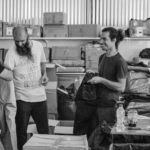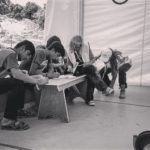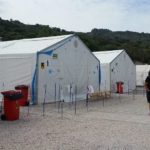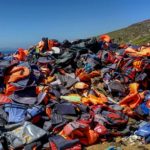In case you missed it, the Friends of Hannon Library hosted Taylor Olson-Hill at the library yesterday for a presentation on volunteering for humanitarian work abroad. Taylor is a native Southern Oregon that has spent the last four years working on international humanitarian projects. She has spent time in Cambodia, Haiti, and most recently the Greek island of Lesvos, where she worked in a refugee camp and saw first-hand the reality of the current refugee crisis. She spoke about the value in volunteering, but she was also honest about the personal cost.
By her admission, the work Taylor did wasn’t glamorous or easy. A day in her life on Lesvos could vary from sorting clothes to running a school, from playing soccer with children to serving as a barrier between refugees and protesting locals. “People can say all they want, that it’s not sexy, it’s not fun,” Taylor remarks as she displays photos of supply warehouses and makeshift classrooms, “but the work is what you make it.” Something as simple as handing out clean clothes or learning someone’s name, she says, can make an important difference in a person’s life.
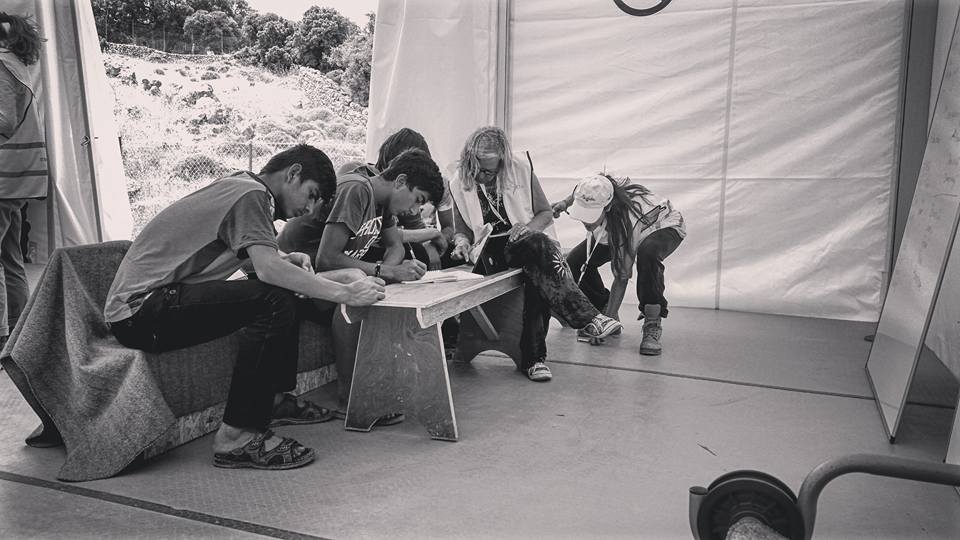
School in the Camp – Lesvos, Greece
Taylor’s presentation was engaging, informative—at times, even tearful. With frank words and personal photographs, she shared the tragic stories and stressful environment she experienced. Among the many photographs display, one of the most vivid images was of what the volunteers on Lesvos called the “life jacket graveyard.”
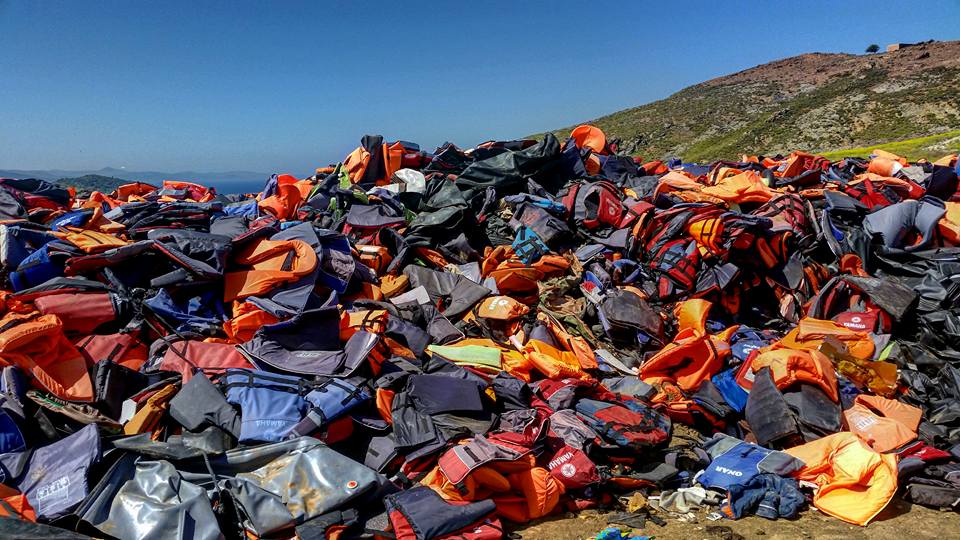
Life Jacket Graveyard – Lesvos, Greece
“Each of these represents a life,” said Taylor in a shaky voice. “Lives of those who made it. And those who didn’t.” With tears in her eyes, Taylor made no effort to hide her emotions while recounting her experiences. As a mother, she sympathizes with the fates of those halfway across the world. “I think, what if it was my boys?”
Much of Taylor’s role in the camp was working with children, unaccompanied minors that made their own way to Greece from Syria, Afghanistan, India, and other conflict-stricken regions. “Fifty percent of all refugees are children,” she states. “They’re not something to be feared. They’re just people. They’re children.”
“Fear comes from a lack of understanding.”
Taylor was open about the toll this kind of work had on her and other volunteers, especially when volunteering in an environment where local objection to the presence of refugees led to ostracism, public protests, abuse, and even mass deaths. Long-term volunteers have been diagnosed with secondary stress disorders—suffering from anxiety, exhaustion, and even guilt. “We felt guilty for being able to leave when they couldn’t,” she said. Taylor spoke about the separation anxiety volunteers felt from not being able to ensure the safety and health of the people they worked with, and of how difficult it was to ultimately leave the island when it was time for her to go home.
“That was probably the hardest day of my life, leaving the camp, because I didn’t know what would happen to them.”
She finished her presentation, however, with a smile. “It’s worth it, I promise you.”
Taylor does urge people interested in humanitarian work to prepare themselves before volunteering, citing the differences between her time in Greece and her time in Haiti. “Do your research, know where you’re going and what the situation is.” She stressed how each place, each circumstance, can be its own reality, and that volunteers must be mentally prepared for the experiences they will encounters. She shares a list of further reading for those that want to learn more:
The Syrian Jihad by Charles R. Lister
A Month With Starfish by Bev Jackson
Third Wave Volunteers (Facebook)
ReliefWeb (Facebook)
International Refugee Assistance Project (Facebook)
This presentation was sponsored by the Friends of Hannon Library as part of their 2016-17 Speaker Series. For more information about Taylor Olson-Hill and her presentation, contact the Friends of Hannon Library at libraryevents@sou.edu.
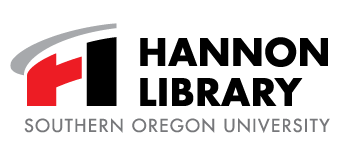

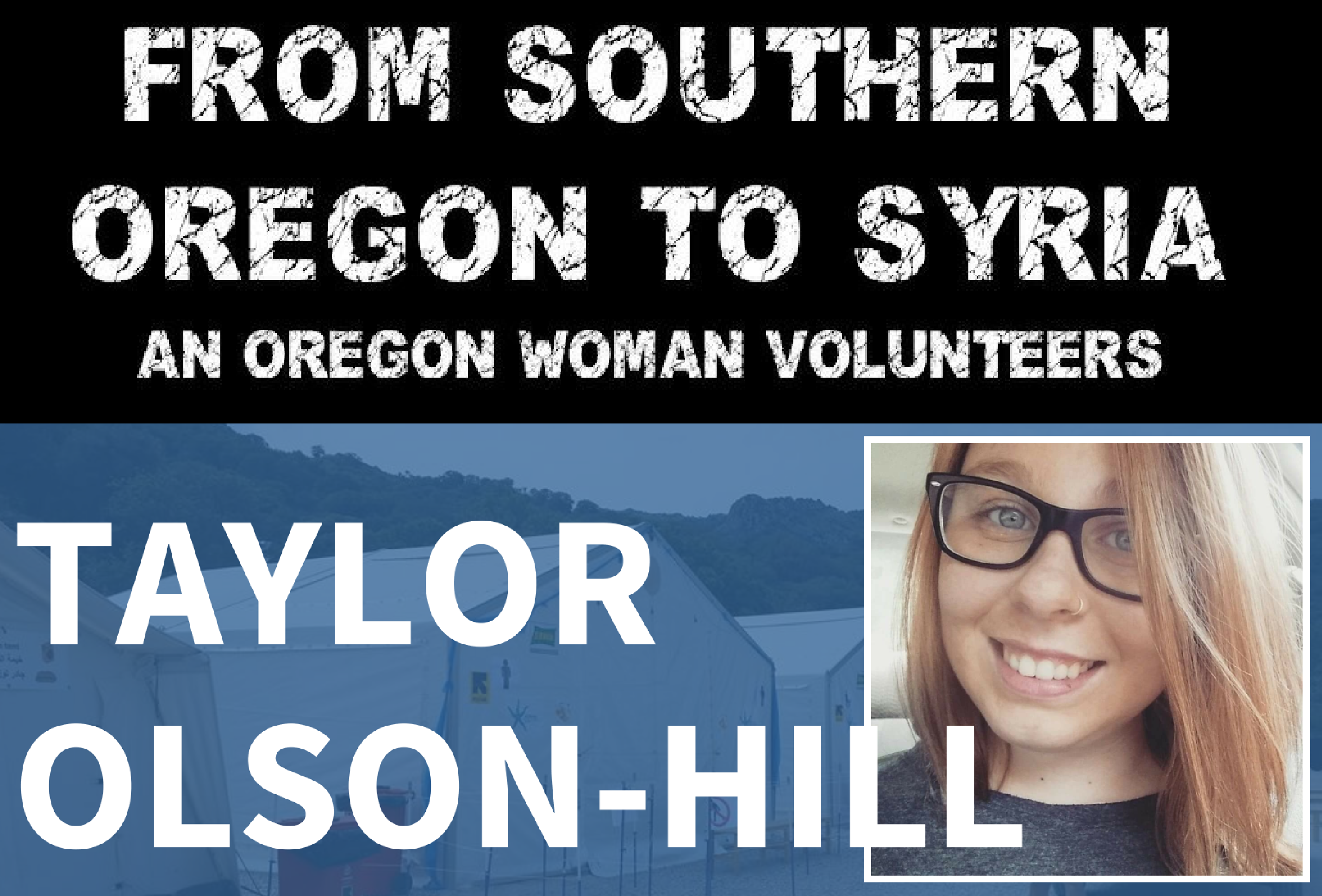
 Taylor Olson-Hill comes to Southern Oregon University’s Hannon Library to share her firsthand experiences with the Syrian refugee crisis and the truth about working inside a refugee camp. Featuring original photographs from Olson-Hill’s recent time working with refugees in Lesvos, Greece.
Taylor Olson-Hill comes to Southern Oregon University’s Hannon Library to share her firsthand experiences with the Syrian refugee crisis and the truth about working inside a refugee camp. Featuring original photographs from Olson-Hill’s recent time working with refugees in Lesvos, Greece.